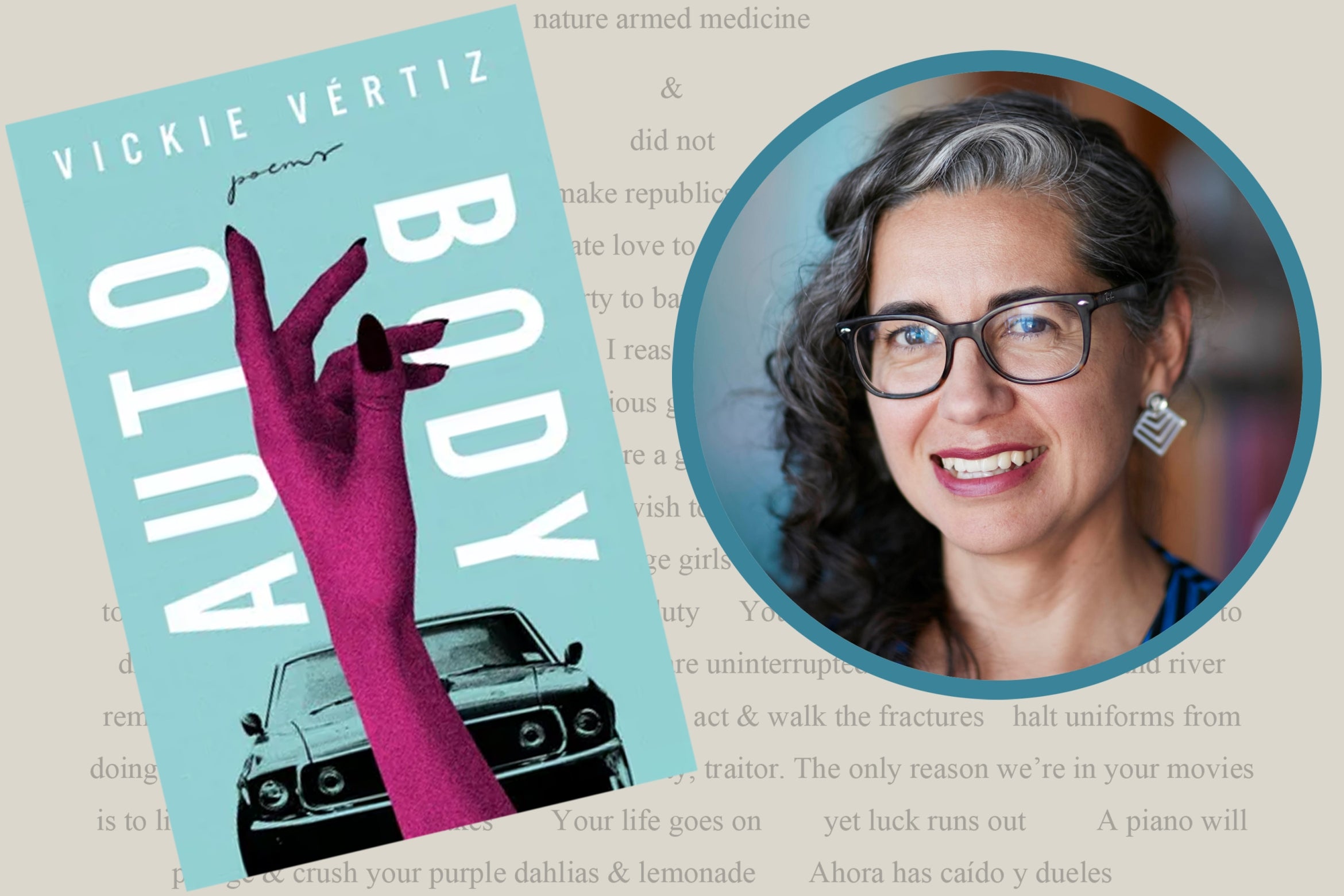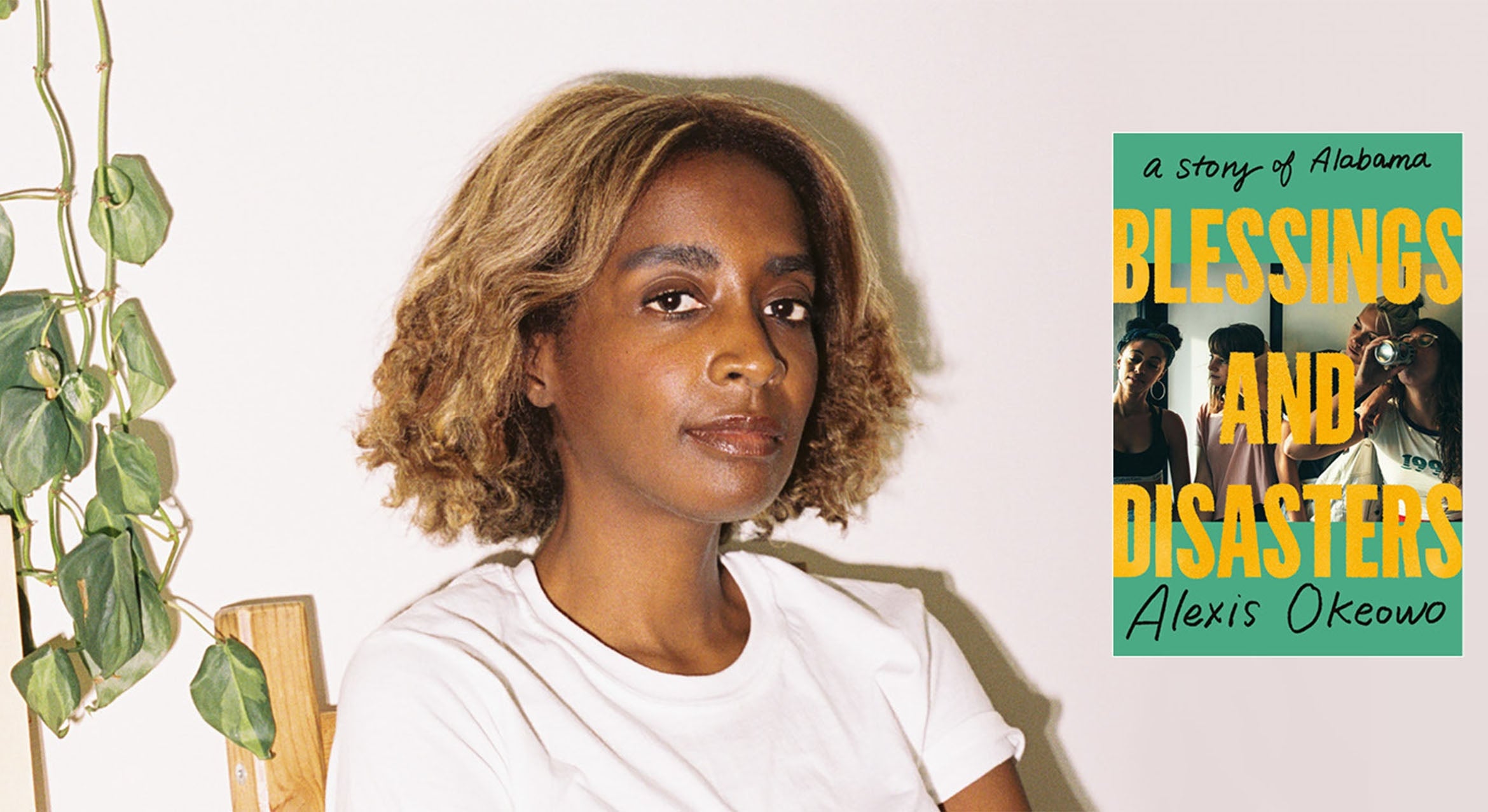
Poet Vickie Vértiz takes the identities that she feels closest to — queer, Brown and immigrant-working class — and turns each one over a stone, smoothing its edges with affirmations.
“At the center of my writing, I value the working class, the resilient, the immigrants — the experience of Black, Indigenous and people of color in Southern California, and particularly, Los Angeles,” said Vértiz, who also identifies as Mexican American, and is a lecturer in the writing program at UC Santa Barbara.
Vértiz’s second book of poems “Auto/Body” — inspired by her experiences living in South East Los Angeles — has received the Ernest Sandeen Prize in Poetry ahead of its February publication by University of Notre Dame Press.
Part of a growing community of Black, Indigenous and people of color poets who are also scholars in Black and American studies, Vértiz’s poetry is a form of cultural excavation, drawing from personal and collective memories around communities of color.
“My work is in conversation with other writers of color who are breaking forms in poetry to understand ourselves and find other ways to live and survive in this world,” she said, noting that poets Robin Coste Lewis and Fred Moten push and inspire her writing and reading.
The book’s title, “Auto/Body,” is a play on words, alluding to the car culture that intersected with Vértiz’s life as a queer woman of color. Vértiz explores sexual desire, admiration and escape through cars and the body. She also touches deeper wounds, such as structural sexual violence, diving into her own rage and “expelling harm” through her poetry.
Playing with expectations of poetic forms, Vértiz crafts some of her poems to take the literal shape of a symbol, such as a broken pyramid on top of a globe in the poem “Nature Armed Medicine.” The poem describes a planet Earth that is reclaiming its resources. In the poem “We Had to Become Doves: An American Sonnet,” after the work of Iranian artist Shirin Neshat, she describes gender fluidity with imagery of nature and feminine bodies: “Let us greet the sun where genders are miles of rattlesnakes cultivating venom / ... / Slip into secrets, live oaks, femme bodies where we grow / into thousands and thousands of branches.”
“When I teach writing I teach it as a form of understanding the self which can liberate us,” she said. “It is a form of expression, of relief, happiness and self-validation in a world that continues to want to erase us, that is, women and workers. And that’s most of us. It’s not just people of color. Capitalism and patriarchy harm everyone and poems are ways out. They are little maps that I’m drawing for people. It’s like, here is something I drew for myself, and that I’m offering.”
Cars are a vessel for many of the offerings in Vértiz’s “Auto/Body.” Her uncle and brother are autobody workers in Los Angeles and Puebla, Mexico, respectively, and her father tuned-up many used cars when she was growing up.
“Many people in my community work on cars,” she said. “We need cars. They are a source of income, but they are also a source of pride.” When she was a kid, Vértiz’s dad liked to take photos of himself and the family in front of the cars. As an adult, she looked at the photos and started thinking, “What are the cars trying to say?” The experience inspired elements of “Auto/Body.”
“My dad was very proud of the cars,” Vértiz said. “Here is this person who has little formal education but has engineering skills. He is basically a mechanical engineer even though nobody calls a mechanic that. I’m celebrating his knowledge and the cars. The book follows a theme of repair. Through this piece of writing, how am I repairing a relationship or a violation?”
One of the rhetorical techniques that Vértiz uses is ekphrasis, or writing about artwork. For Vértiz, it’s queer Black and Brown art that has inspired poetry. In her poems, she has engaged with performance artists Celia Herrera Rodriguez, Rafael Esparza and Sebastian Hernandez, among others. “I feel a kinship with their work and their expression, their courage, as they put their literal bodies on display,” she said.
Vértiz’s admiration for (and crushes on) drag queens, including Vanessa Vanjie Mateo from Puerto Rico via Florida, also finds its way to poems that take place at queer bars and drag shows.
“For me, queerness and the celebration of it has always been in a club,” she added. “That’s where I always felt most safe as a queer person.”
Debra Herrick
(805) 893-5446
debraherrick@ucsb.edu



